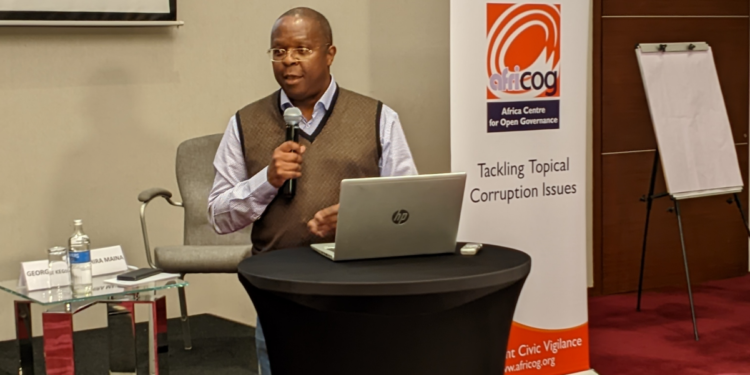What is the role of civil society in the developing contest in Kenya? Are CSOs disconnected from the society they seek to serve? What is the future of civil society organisations?
These are some of the questions speakers at a public forum in Nairobi sought to answer as the country emerges into a new dispensation after the conclusion of the 2022 general election.
It was noted that the question of whether CSOs are disconnecting from society has been asked with increasing frequency in recent years, not just in Kenya but also all over the world.
Many observers noted that there is a growing distance between CSOs and the people they claim to serve, particularly during times of crisis. The people feel more distant from the organisations that are ostensibly there to help them.
Lawyer Wachira Maina attributed this to the ongoing shift in political values and systems.
“We can see a global democratic recession. The continuous decline and eventual stagnant growth of democracy worldwide is a worrying sign. Safeguarding and expanding a democratic society is important for maintaining peace among social communities, making it a top priority,” the constitutional law expert and governance adviser told the participants.
He added that the manifestation of the demise of democracy is the widespread promotion of autocratic norms.
In addition, Maina said, the pervasive counter-democratic ideological force of neoliberalism, which is based on the idea of ignoring fundamental human needs, has deeply impacted people’s lives, identities, and beliefs “despite its obvious failure to sustain any meaningful sense of economic growth”.
There was consensus that the nature of civil society has shifted in recent decades, with many CSOs becoming more professionalised and removed from their original “grassroots” orientation. In some cases, this shift has been driven by resource constraints or a need to focus on specific issues. As a result, CSOs have become less engaged with the wider population.
Another reason for the shift in the mission of NGOs was attributed to funding.
Maina explained that the era of civic and donor evangelism is not enough to fund or support a good cause, adding that funding good causes may undermine support for effective causes.
As non-profit NGOs are funded mainly through donations from foundations, bilateral and multilateral donors and other NGOs in the West expect the CSOs on the ground to have a voice, but not ideas.
“Civil society must keep working to regurgitate the false narratives that the West has given us,” Brian Kagoro, Director of Justice and Intersectionality at the Open Society Foundation, said.
“We were peddlers of hope in the ’80s and ’90s, but we have now been replaced by the Church,” he stated, adding that the Church has also adapted to its new role by “becoming an industrial complex that does everything that communism and capitalism did”.
To remain relevant, he warned, civil society needs to manifest itself by bringing about critical consciousness not only in criticising abuses but also in creating solutions.
In addition, Kagoro said, if CSOs do not fight this narrative, they risk remaining a mere donor-funded aperture that is afraid to engage with politicians.
“We are becoming a society that believes in informal institutions compared to formal institutions,” Prof Karuti Kanyinga of the University of Nairobi, said.
According to statistics the governance expert produced, religious organisations are the most trusted among the social-political institutions in Kenya, at 67 per cent.
However, some stakeholders held on to hope for the future of CSOs. They pointed out that it is important to recognise that many civil society organisations are still closely tied to local communities and remain deeply rooted in their mission of social service. This group does not think that the “professionalisation” of the CSOs means that they are disconnected from the people, who are the reason for their existence.
They said there is evidence to suggest that many civil society organisations are actively striving to be more engaged with their target populations and build stronger relationships with them. CSOs have adopted new approaches and technologies to better understand their audiences and reach out to them in meaningful ways. In addition, the proponents said, they are also increasingly collaborating with other organisations to ensure that their efforts reach the right people, not just those within their own circle.
Some participants were of the opinion that civil society will continue to play an important role in communities. They pointed out that understanding how individual organisations engage with their constituents is essential in determining the level of connection to or disconnection from society. The future of civil society, they agreed, will depend, to a large extent, on the strength of these relationships.
The forum was organised by the Africa Centre for Open Governance (AfriCOG) and Kenyans for Peace with Truth and Justice (KPTJ).







